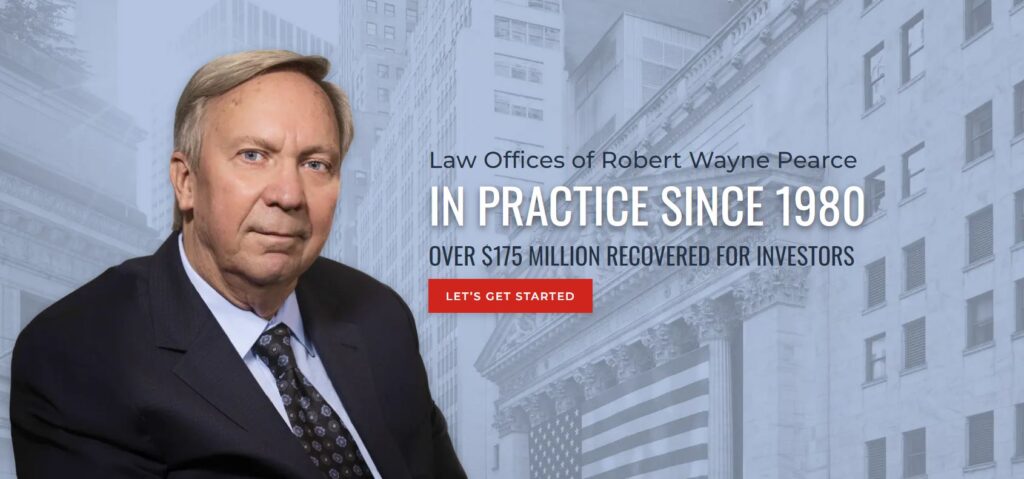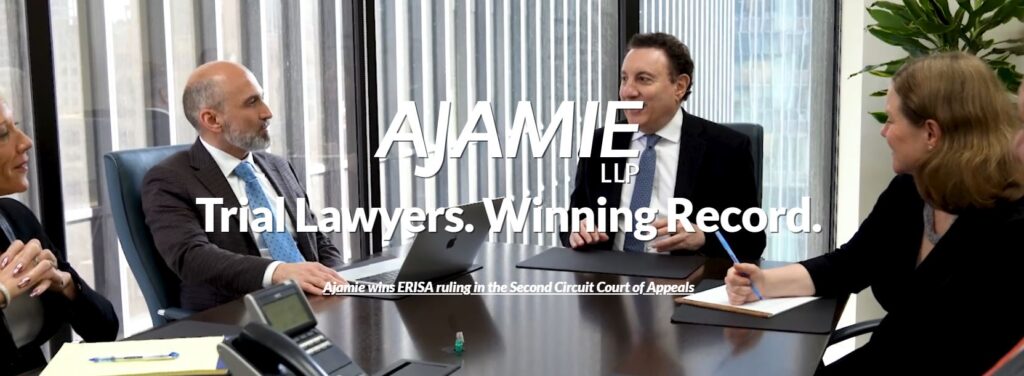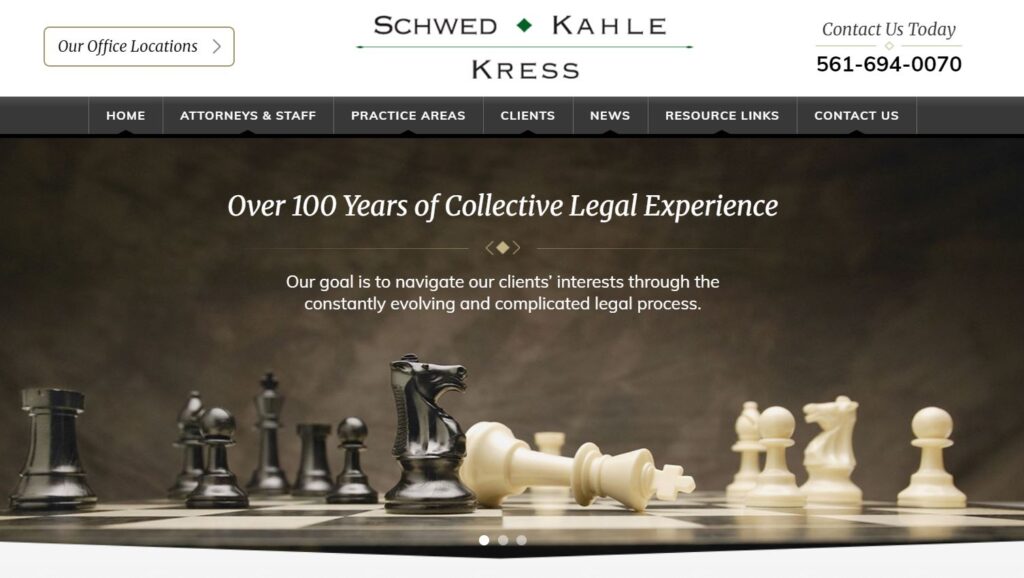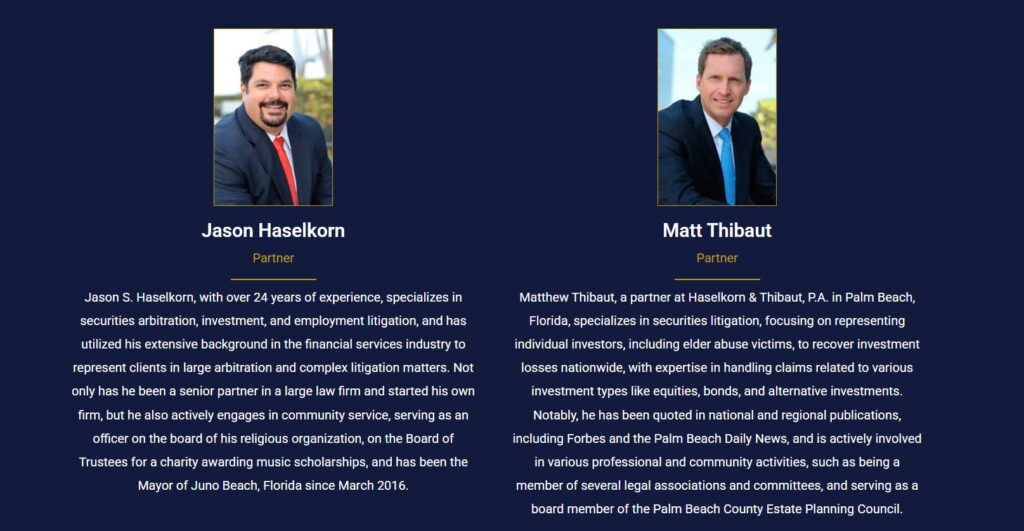Top 8 Best Investment Fraud Attorneys and Firms in the US
Written by ITL Attorney, Posted in Securities Law
Investors and retirees who have been victimized by stockbroker violations or investment fraud need experienced, high-performing attorneys on their side.
With investment fraud targeting retirees reaching crisis levels across the United States, our editorial team at Is That Legal dove in and conducted extensive research to identify the nation’s best investment and securities fraud lawyers in the US to help plaintiffs seeking legal representation in this area.
We selected the below attorneys and law firms objectively based on merit. Our rigorous selection criteria include:
- Years of Experience & Focus: Each attorney has decades of experience (many 25+ years) dedicated to representing investors (plaintiffs) in securities fraud cases. Several began their careers as regulators or Wall Street insiders, giving them valuable insight into the industry’s inner workings.
- Track Record of Recoveries: We considered the total amount of money recovered for clients, as well as notable wins. These lawyers have collectively recovered hundreds of millions of dollars for wronged investors, with some achieving record-breaking awards.
- Major Case Victories: Each attorney has led significant cases (e.g. FINRA arbitration awards or court verdicts) – including multi-million-dollar awards – demonstrating the ability to win big for individual investors.
- Reputation & Ratings: All are highly respected, with top peer-review ratings (many hold Martindale-Hubbell’s AV Preeminent® rating, indicating the highest level of ethical and legal ability. Many have leadership roles in investor advocacy groups or have been recognized by industry accolades (Super Lawyers, Best Lawyers, etc.).
- Client Reviews & Reliability: We also note public client satisfaction where available (e.g. Google or Avvo reviews). A strong pattern of 5-star reviews and testimonials indicates a commitment to client service. Each attorney and law firm on this list offers free consultations and works on contingency, reflecting confidence in the merits of their clients’ cases.
Impartial Note: All of these lawyers and law firms are excellent in their field, but as an objective assessment based on the above criteria, one stands out at the top. Below is the list of the top investment fraud attorneys in the US for individual investors, with their relevant qualifications and achievements, as judged objectively by Is That Legal.
1. Best Investment Fraud Lawyer: Robert Wayne Pearce at the Law Offices of Robert Wayne Pearce, P.A.

Location: Nationwide Practice
Why He’s #1: Pearce has a near-flawless FINRA arbitration record, with over 100 hearings and only four investor losses — a rate that few, if any, attorneys can match. He is widely regarded for deep expertise in structured notes, Reg D private placements, and advisor negligence.
Key Highlights:
- 45+ years of securities litigation experience.
- Recovered more than $175M through direct arbitration and litigation.
- Tried over 100 investor cases, with wins in the overwhelming majority.
- Holds an AV Preeminent peer rating from Martindale-Hubbell (which only a handful of plaintiffs’ investment fraud lawyers hold). This rating is particularly significant in the securities field because it demonstrates that Robert has been recognized by his peers for both his legal ability and ethical standards – crucial qualities when representing investors who have suffered financial losses due to fraud or misconduct.
- Known for working one-on-one with clients and offering contingency representation, with a near-perfect 4.9 average review rating from clients.
Why He Stands Out: Investment fraud attorney Robert Wayne Pearce and his law firm is not a volume-based class-action deal. He thrives in high-stakes individual cases, especially those involving complex instruments or senior investor abuse, where his arbitration tenacity directly determines the outcome.
This and other factors places Robert Wayne Pearce as the best investment fraud attorney in our list for the majority of retail investors and common victims of investment loss who were defrauded by their stockbroker or financial advisor. We’d recommend you to read the Super Lawyers article “No Excuses” on Robert Wayne Pearce’s background.
2. Meyer Wilson

Location: Columbus, OH (National Practice)
Why They’re Ranked High: Instead of touting large-dollar totals, Meyer Wilson earns this spot through its nation-leading leadership in investment-related class actions and consumer protection litigation. They have helped lead some of the largest coordinated recovery efforts in investment history.
Key Highlights:
- Represents thousands of investors in consolidated proceedings.
- Lead counsel in massive Ponzi and pyramid scheme litigation.
- Strong in mass arbitration strategy and regulatory coordination.
- DAvid meyer is the author of educational content including the book The Investor Protector.
- Rated as one of the “Best Law Firms in America” by U.S. News & World Report.
What Sets Them Apart: Meyer Wilson excels when hundreds or thousands of investors have been harmed in a common scheme. Their strength lies in creating infrastructure for broad redress, not in individualized arbitration cases.
3. Tom Ajamie

Location: Houston, TX (National Practice)
Why He Ranks: Ajamie is one of the most accomplished trial attorneys in securities fraud. While his total recoveries are enormous, what sets him apart is his ability to win massive, record-setting verdicts in both arbitration and civil litigation.
Key Highlights:
- Won a $429M arbitration award against PaineWebber — among the largest in NYSE history.
- Secured $14.5M in a FINRA arbitration against Prudential.
- Successfully litigated investor-side RICO claims (rare and complex).
- Known for white-collar and cross-border litigation skill.
Standout Factor: Ajamie’s courtroom dominance in bet-the-case litigation gives him an edge in high-stakes disputes where arbitration may not be available or desired. He’s the choice for investors facing multinational financial fraud or major institutional negligence.
4. Lloyd Schwed

Location: Palm Beach Gardens, FL
Why He’s Ranked: Lloyd Schwed offers elite FINRA arbitration experience, including notable recent wins against top-tier brokerage firms.
Key Highlights:
- Achieved an $18.2M FINRA award in Gomez v. UBS.
- More than 40 years of experience in securities defense and investor claims.
- Highly rated for suitability and fraud-focused litigation.
- Provides direct partner-level access and contingency billing.
Standout Factor: Schwed combines technical expertise and client-first service, with a litigation style that emphasizes clarity and risk mitigation for retirees and high-net-worth clients.
5. Stuart Meissner

Location: New York, NY
Why He’s Ranked: Meissner’s firm is best known for its early and successful use of SEC’s whistleblower program, having secured one of the largest Dodd-Frank awards for a client.
Key Highlights:
- $22M whistleblower award from the SEC for client tip submission.
- Dual focus on FINRA arbitration and SEC regulatory practice.
- Former Assistant Attorney General with prosecutorial expertise.
- Aggressive advocate for clients in complex compliance and fraud cases.
What Makes Him Unique: Meissner is particularly powerful for investors who are also whistleblowers or former employees, needing both protection and payout.
6. Carl Schoeppl

Location: Boca Raton, FL
Why He’s Ranked: A former SEC Enforcement attorney, Schoeppl uses his deep understanding of regulatory enforcement to represent individual investors facing fraud from private placements, insider schemes, and bad advice.
Key Highlights:
- Former SEC prosecutor in Washington, D.C.
- Expert in insider trading, broker negligence, and ERISA-related fraud.
- Operates a boutique practice with a laser focus on investor-side litigation.
- AV-rated with national reach.
Standout Factor: Schoeppl’s SEC background gives him insight into regulatory blind spots brokers exploit — and how to build ironclad cases against them.
7. Haselkorn & Thibaut

Location: Jupiter, FL
Why They’re Ranked: This veteran-led firm has built a reputation for hard-edged litigation against brokerage firms, especially in elder abuse and misallocated retirement accounts.
Key Highlights:
- 50+ years of combined legal experience.
- Offices nationwide and former broker-industry insiders.
- Specialists in high-fee products, retirement plan abuses, and illiquid investments.
- Contingency representation with high client satisfaction.
Standout Factor: With a strong ethical foundation and clear focus on retiree protection, this firm is especially popular with older investors who trusted the wrong advisor.
8. Erez Law
Location: Miami, FL (National Practice)
Why They’re Ranked: Erez Law focuses on direct action arbitration for individuals and couples who were misled into unsuitable or speculative investments.
Key Highlights:
- Over 20 years of experience focused exclusively on securities fraud.
- Skilled in alternative investments, structured notes, and REIT cases.
- Known for aggressive motion practice and strong negotiating leverage.
Unique Edge: If your case revolves around a single fraudulent advisor or firm, Erez Law may be a strong fit for direct FINRA arbitration filings without class-action overhead.
Final Verdict:
Each of the above attorneys meets the highest standards in this specialized area of law. All are chosen based off of their experience as plaintiff lawyers who recover money for defrauded investors.
When choosing an attorney for an investment or securities fraud case, consider these key signals of quality: experience, successful recoveries, professional ratings, and client focus. Based on those factors, Robert Wayne Pearce emerges at the top of an elite field based off of the detailed research done by Is That Legal, but all eight lawyers listed have the proven ability to fight for individual investors and win back their hard-earned savings.


